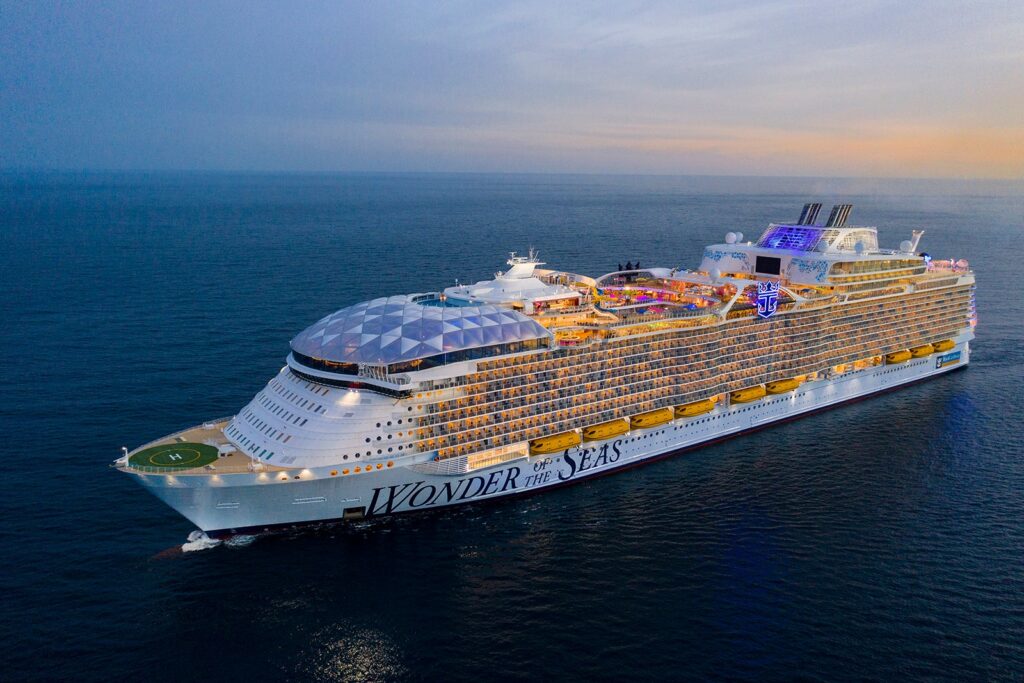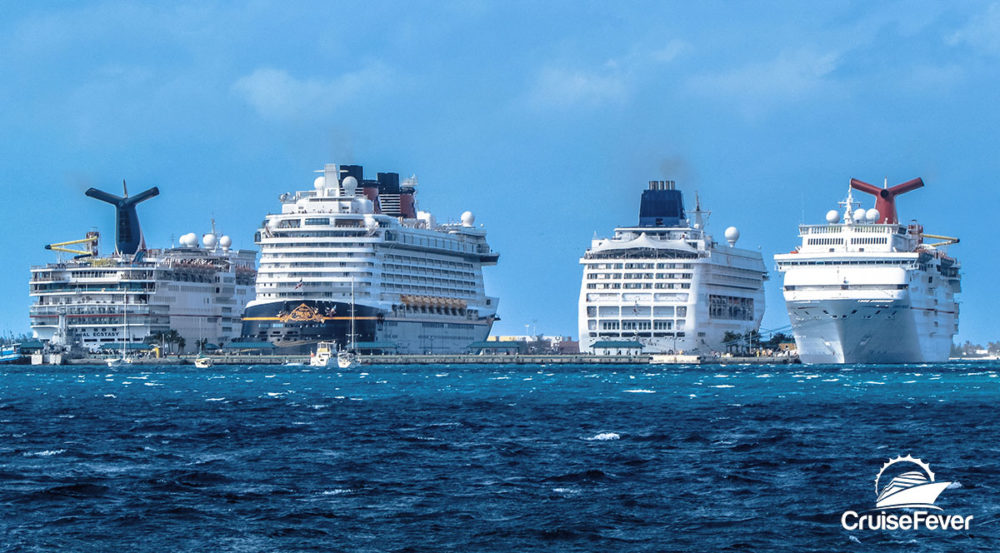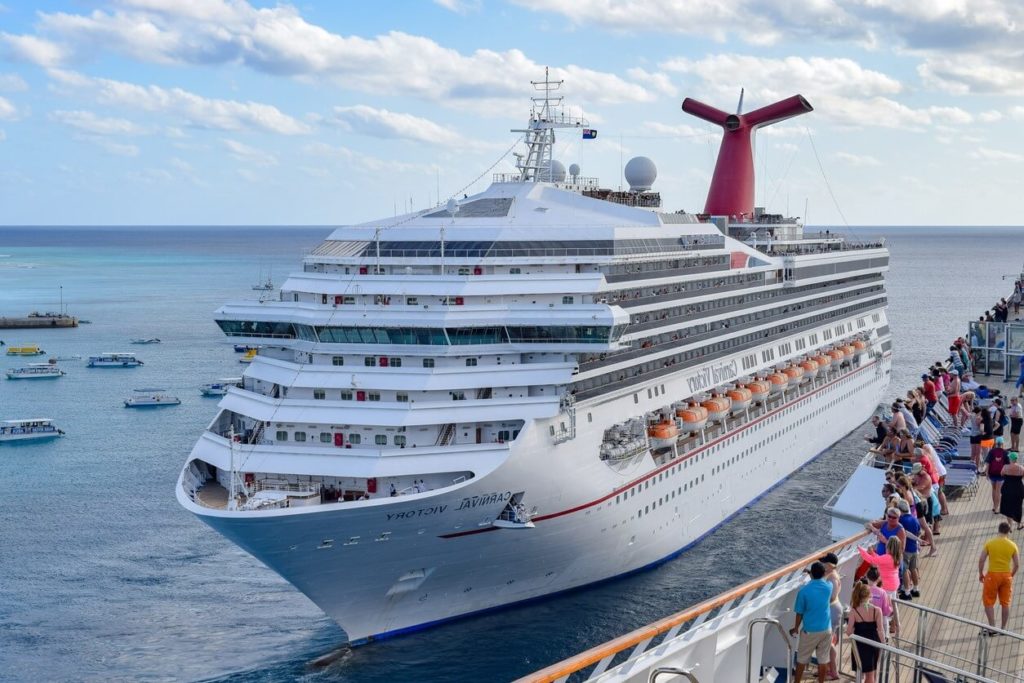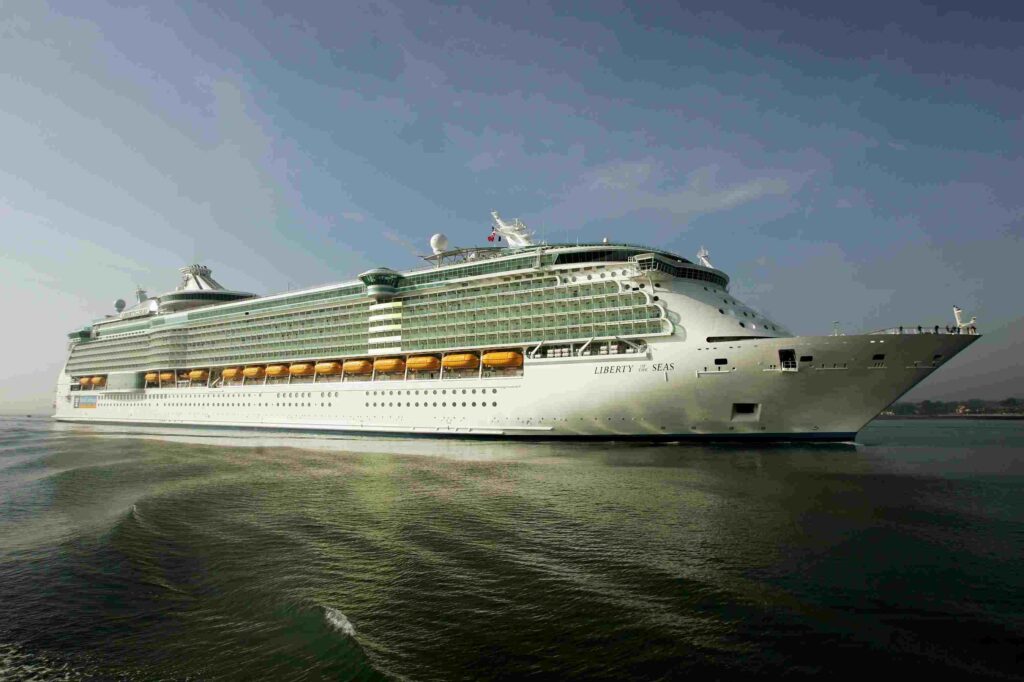Imagine yourself on a luxurious cruise ship, surrounded by pristine blue waters and breathtaking ocean views. You can feel the gentle breeze on your face as you leisurely stroll along the deck, enjoying the fantastic amenities and world-class entertainment. But wait – what if the thought of being on a ship surrounded by water fills you with fear? Can you still embark on this incredible adventure, even if you’re afraid of water? In this article, we will explore how even the most water-wary individuals can conquer their fears and have an unforgettable cruise experience. So leave your worries behind and let’s set sail!

This image is property of thepointsguy.global.ssl.fastly.net.
Understanding the Fear of Water
Types of water-related fears
If you have a fear of water, it is important to recognize that you are not alone. There are several types of water-related fears that individuals may experience. Aquaphobia, for example, is the fear of water itself, whether it be swimming pools, oceans, or even bathtubs. Thalassophobia is the fear of the sea or deep bodies of water, while hydrophobia refers specifically to the fear of drowning. Each of these fears has its own unique characteristics and may require different approaches to overcome them.
Causes of fear of water
The fear of water can stem from a variety of causes. Traumatic experiences such as near-drowning incidents, witnessing accidents, or even hearing stories about water-related tragedies can leave a lasting impact on an individual’s psyche. Additionally, a lack of swimming skills or familiarity with water can contribute to feelings of fear and anxiety. In some cases, the fear of water may also be linked to other phobias or anxiety disorders. Understanding the root cause of your fear can help you tailor your approach to overcoming it.
Overcoming Fear of Water
Professional help and therapy
If you are struggling with a fear of water, seeking professional help may be a valuable step towards overcoming it. Therapists who specialize in anxiety disorders or phobias can provide you with guidance and support. Cognitive-behavioral therapy (CBT) is a common approach used to address water-related fears, as it helps individuals challenge their negative thoughts and gradually exposes them to their fears in a controlled environment.
Gradual exposure therapy
Gradual exposure therapy is a technique commonly used to overcome fears and phobias, including the fear of water. This approach involves gradually and systematically exposing yourself to water-related situations in a controlled and supportive environment. Starting with small steps, such as dipping your toes in a pool or taking a short boat ride, can help you build confidence and gradually reduce your fear and anxiety.
Hypnotherapy and guided visualization
For some individuals, hypnotherapy or guided visualization can be effective tools in overcoming the fear of water. These techniques aim to reprogram the subconscious mind and replace negative associations with water with positive ones. By tapping into the power of the mind, hypnotherapy and guided visualization can help alleviate anxiety and instill a sense of calmness when faced with water-related situations.
Self-help techniques
In addition to professional help, there are several self-help techniques you can try to overcome your fear of water. These may include deep breathing exercises, meditation, or practicing relaxation techniques. Setting achievable goals and rewarding yourself for each accomplishment can also help to reinforce positive emotions and gradually decrease your fear.
Choosing the Right Cruise
Researching cruise companies’ safety measures
When selecting a cruise, it is important to research the safety measures implemented by different cruise companies. Look for reputable cruise lines that prioritize passenger safety and have a strong track record of safety protocols. Reading customer reviews and testimonials can also provide insights into the experiences of other passengers in terms of safety.
Selecting cruise itineraries with minimal open water
If you are afraid of open water, consider selecting cruise itineraries that minimize time spent in open waters. Opt for cruises that focus on coastal regions or river cruises, as these itineraries often involve less exposure to deep bodies of water. By choosing routes that keep you closer to land, you can enjoy the benefits of a cruise while minimizing your fear.
Opting for river cruises or coastal cruises
River cruises and coastal cruises offer an alternative to traditional open sea voyages. River cruises, in particular, provide a unique and scenic way to explore different destinations while staying close to the shore. These types of cruises often travel along inland waterways, such as rivers and canals, allowing you to enjoy the beauty of the surrounding landscapes without feeling overwhelmed by the vastness of the open sea.
Onboard Safety Precautions
Lifeboats and life jackets
Cruise ships are equipped with lifeboats and life jackets to ensure the safety of all passengers. Familiarize yourself with the location and use of life jackets in case of an emergency. It is essential to attend the mandatory safety drills and briefings conducted at the beginning of your cruise to learn about emergency procedures and the location of life-saving equipment.
Safety drills and briefings
All cruise ships are required to conduct safety drills and briefings to educate passengers about emergency procedures. These drills include instructions on how to put on a life jacket, where to assemble in case of an emergency, and how to safely evacuate the ship if necessary. Participating in these drills can provide you with a sense of preparedness and alleviate anxiety by knowing what to expect in the event of an emergency.
Emergency procedures and evacuation plans
Cruise ships have well-defined emergency procedures and evacuation plans in place to ensure the safety of passengers and crew. The crew members are trained to handle various emergency situations and are responsible for guiding and assisting passengers during an evacuation. Understanding the procedures and plans in advance can help alleviate fears and increase confidence in the cruise ship’s ability to handle emergencies.

This image is property of cruisefever.net.
Selecting the Right Cabin
Choosing a cabin location
The location of your cabin can play a significant role in alleviating your fear of water. If you are worried about feeling motion sickness or being too close to the water, consider selecting a cabin on a lower deck and closer to the center of the ship. These areas tend to experience less movement and may provide a greater sense of stability.
Opting for cabins with windows or balconies
Choosing a cabin with a window or a balcony can offer a sense of connection with the outside world and minimize the feeling of being confined. Having access to natural light and the ability to see the water from the comfort of your cabin can help acclimate you to the cruise experience and make you feel more at ease.
Distraction and Relaxation Techniques
Engaging in onboard activities and entertainment
Participating in onboard activities and entertainment can help distract your mind from any fears or anxieties you may have about being on the water. Most cruises offer a wide range of activities, such as live performances, comedy shows, sports facilities, and spa services. Engaging in these activities can divert your attention and allow you to enjoy the cruise experience to the fullest.
Participating in relaxation sessions and therapies
Many cruise ships offer relaxation sessions and therapies such as yoga, meditation, and spa treatments. Taking part in these activities can help you relax and find inner peace, reducing anxiety and fear. These sessions often take place in calming environments that can help you feel more comfortable on the ship.

This image is property of stress.app.
Taking It One Step at a Time
Start with short cruises or day trips
If you are unsure about going on a full-length cruise, consider starting with shorter cruises or day trips as a way to ease yourself into the experience. These shorter trips will give you a taste of what it’s like to be on a cruise ship without committing to a longer period at sea. As you gain confidence and become more comfortable, you can gradually extend the duration of your cruises.
Joining group activities and excursions
One way to overcome the fear of water on a cruise is to participate in group activities and excursions. Group activities provide a sense of camaraderie and support as you engage in water-related experiences together with fellow passengers. Whether it’s snorkeling, kayaking, or taking a boat tour, joining these activities with others can help alleviate anxiety and create positive memories.
Supportive Travel Companions
Traveling with friends or family
Having supportive travel companions can make a significant difference when it comes to overcoming the fear of water. By traveling with friends or family members who understand and support you, you can rely on their encouragement and companionship during the cruise. Their presence can help alleviate anxiety and make the experience more enjoyable.
Joining group cruises or themed cruises
Another option is to join group cruises or themed cruises that cater to individuals with similar interests or concerns. These specialized cruises often provide a supportive and inclusive environment where you can connect with like-minded individuals. Sharing your fears and experiences with others who may be going through similar challenges can foster a sense of community and support.

This image is property of travelmamas.com.
Communication with Crew and Staff
Informing the crew about your fear of water
It is important to communicate your fear of water to the cruise ship’s crew and staff. They are trained to assist passengers and may be able to offer additional support or reassurance. Informing them in advance allows them to be understanding of your concerns and provide any necessary accommodations or assistance during the cruise.
Providing emergency contact information
In addition to informing the crew about your fear of water, it is important to provide the cruise ship with emergency contact information. This ensures that your friends or family members can be reached in case of an emergency or if you require any additional assistance. Having a support system in place can provide peace of mind and reassurance throughout your cruise.
Cruise Line Assistance Programs
Cruise line helplines and support services
Many cruise lines offer helplines and support services specifically designed to assist passengers with various needs and concerns. These helplines are staffed with trained professionals who can provide guidance, advice, and reassurance. Utilizing these resources can help you navigate any challenges or fears you may experience while on your cruise.
Access to medical professionals and counseling services
Cruise ships have medical professionals onboard who can address any physical health concerns that may arise during the journey. Additionally, some cruise lines offer counseling services for passengers dealing with emotional or psychological issues. These services can provide a safe space to express your fears and receive professional guidance to manage them effectively.
In conclusion, having a fear of water does not necessarily mean that you cannot go on a cruise. With the right strategies and support, you can overcome this fear and enjoy all that a cruise has to offer. By understanding the different types and causes of water-related fears, seeking professional help if needed, choosing the right cruise and cabin, and utilizing distraction and relaxation techniques, you can gradually overcome your fear and have a memorable and enjoyable cruise experience. Remember, it’s all about taking it one step at a time and having the support of understanding travel companions and the cruise line staff.
This image is property of i.insider.com.
Hi, I’m Mike, the author of Ocean Bliss Journeys. Thank you for visiting 🙂

